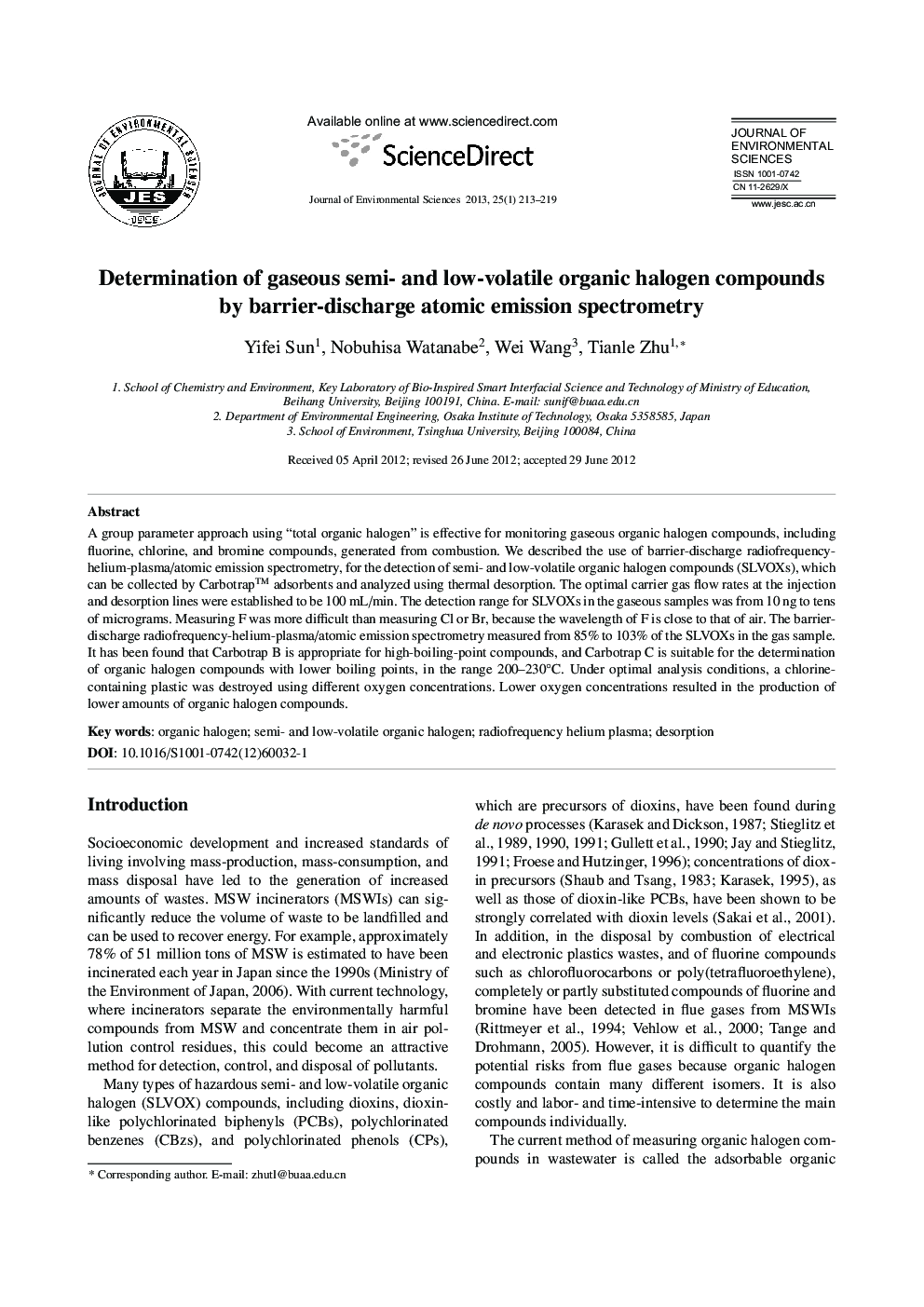| کد مقاله | کد نشریه | سال انتشار | مقاله انگلیسی | نسخه تمام متن |
|---|---|---|---|---|
| 4455150 | 1312506 | 2013 | 7 صفحه PDF | دانلود رایگان |

A group parameter approach using “total organic halogen” is effective for monitoring gaseous organic halogen compounds, including fluorine, chlorine, and bromine compounds, generated from combustion. We described the use of barrier-discharge radiofrequency-helium-plasma/atomic emission spectrometry, for the detection of semi– and low-volatile organic halogen compounds (SLVOXs), which can be collected by Carbotrap™ adsorbents and analyzed using thermal desorption. The optimal carrier gas flow rates at the injection and desorption lines were established to be 100 mL/min. The detection range for SLVOXs in the gaseous samples was from 10 ng to tens of micrograms. Measuring F was more difficult than measuring Cl or Br, because the wavelength of F is close to that of air. The barrier-discharge radiofrequency-helium-plasma/atomic emission spectrometry measured from 85% to 103% of the SLVOXs in the gas sample. It has been found that Carbotrap B is appropriate for high-boiling-point compounds, and Carbotrap C is suitable for the determination of organic halogen compounds with lower boiling points, in the range 200–230°C. Under optimal analysis conditions, a chlorine-containing plastic was destroyed using different oxygen concentrations. Lower oxygen concentrations resulted in the production of lower amounts of organic halogen compounds.
Journal: Journal of Environmental Sciences - Volume 25, Issue 1, 1 January 2013, Pages 213-219